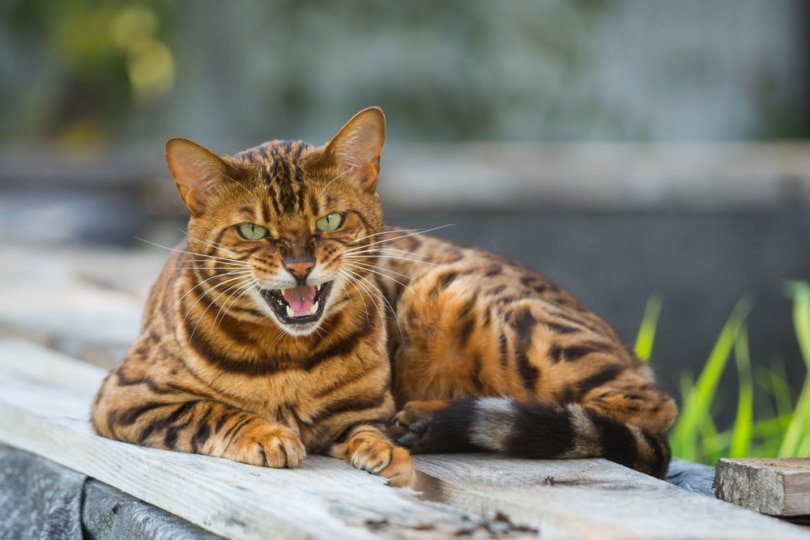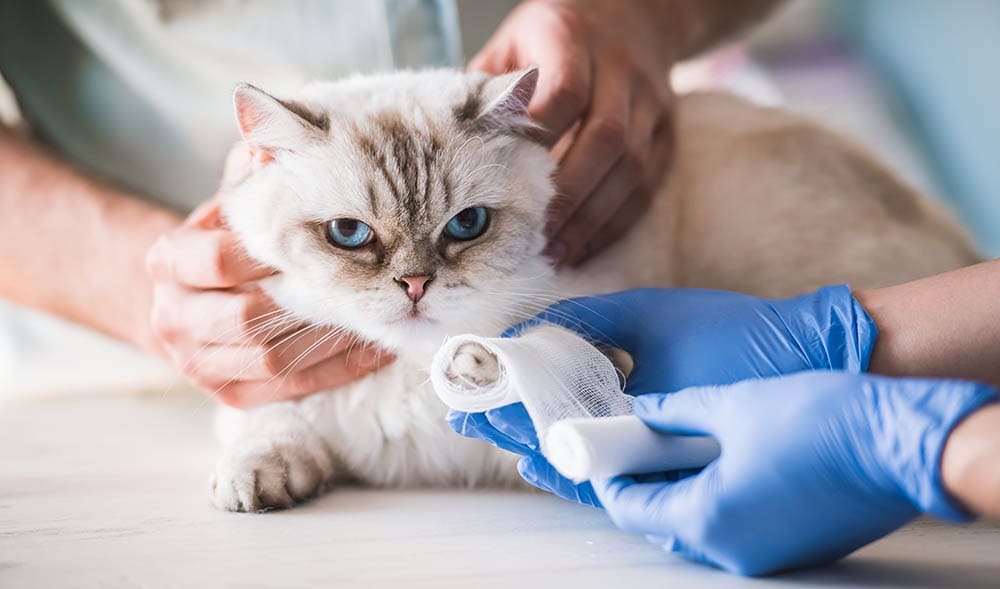How Long Do Devon Rex Cats Live? Average Lifespan, Data & Care Guide
Updated on
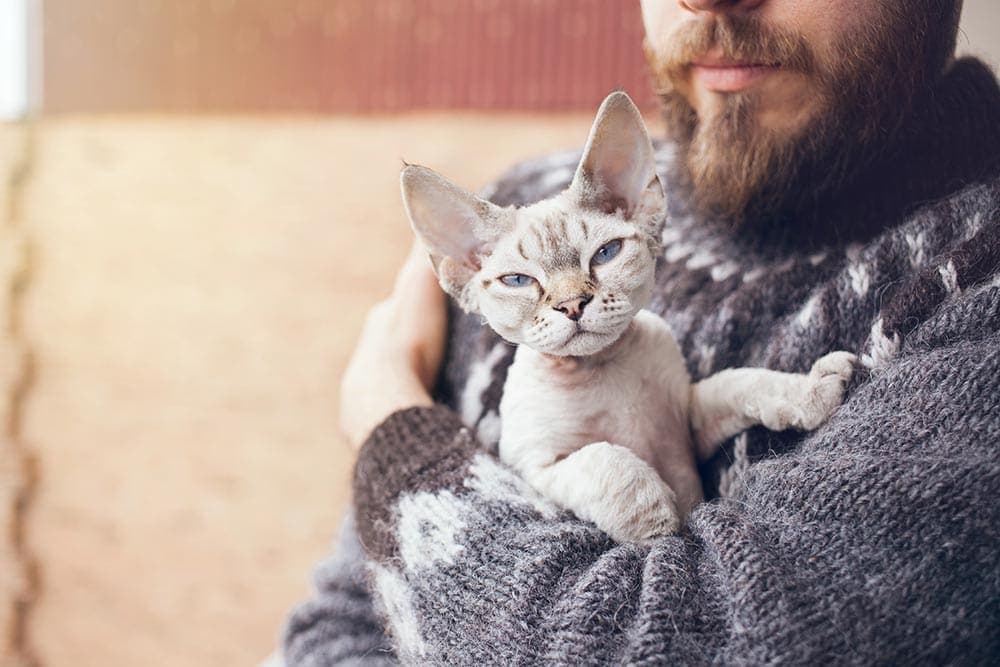
Click to Skip Ahead
The Devon Rex is an exceptionally affectionate, playful, and dog-like cat that makes an excellent family pet and companion. These cuddly cats are also quite eye-catching, thanks to their unique, angular faces and the folds in the D-Rex’s fur and skin that make them look somewhat wrinkled. However, the Devon Rexes’ genuinely caring nature makes these cats such wonderful pets and adoring buddies.
Knowing that a Devon Rex makes such a fine furry friend, you might wonder how long these charming cats live. Devon Rex cats have an average lifespan of 9 – 13 years. You might also want to know about any health concerns the Devon Rex has that might affect its lifespan or what you can do to help your Devon Rex live a longer, healthier life. To find out, read on.
What’s the Average Lifespan of a Devon Rex?
The Devon Rex lives a little bit longer than the average lifespan of the average cat, between 9 and 13 years. Since the average cat lives about 7 to 13 years, most Devon Rexes will live about 2 years longer. However, some sources say Devon Rexes can live 10 to 15 years. Our data comes from Hill’s Pet, and there are certain things you can do to help your Devon Rex live a longer life, and many live longer than 13 years.1
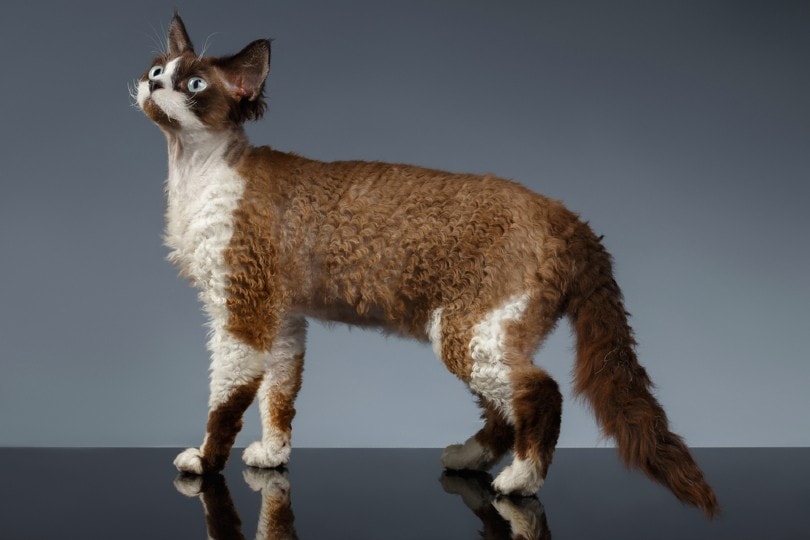
The 8 Reasons Why Some Devon Rexes Live Longer Than Others
Like humans, cats have certain needs, and when those needs are met, the chance of living longer is much higher. Certain biological and other factors also play a role. Below we take a closer look at the needs your Devon Rex has and what you can do to meet and exceed them.
1. Nutrition
Proper nutrition is essential for all living creatures, and that includes your Devon Rex. It’s critical that you feed your cat a balanced diet that’s high in protein and healthy fats based on its age and other factors. If you’re unsure what to feed your Devon Rex, you can’t go wrong with high-quality cat food made from quality proteins.
There are many options, including dry, canned, fresh-made, and frozen. Look for food with meat protein as the first ingredient and no artificial ingredients. Also, keep snacking down to a minimum with your Devon Rex since they might become obese as they get older.
2. Environment and Conditions
Because of its unique skin and coat, the Devon Rex is prone to sunburn if it’s an outside cat. However, due to their delicate nature and adoration for humans, most Devon Rexes will be indoor cats almost exclusively. Whichever they are, your D-Rex needs a safe, warm place to sleep with adequate padding and ventilation. Most likely, however, it will be sleeping very close to you.
3. Enclosure Size/Living Quarters/Housing
A catio, or cat patio, is perfect for a Devon Rex as it allows them to experience the outdoors without getting into trouble or running off. Besides that, if you take your D-Rex outside to play, which they will gladly do, it’s best to watch them closely. They won’t run off, per se, but they could get into trouble because they’re so playful and curious. Inside your home, be sure to provide plenty of toys for your Devon Rex to keep them happily occupied when they can’t play with anyone.
4. Size
Devon Cats tend to all be about the same size, and no research or scientific evidence shows that their size plays any role in their lifespan. Since Devon Rexes are relatively small, the theory is that they should live longer lives than a larger cat breed. However, the evidence is still out on how size affects cat lifespans.
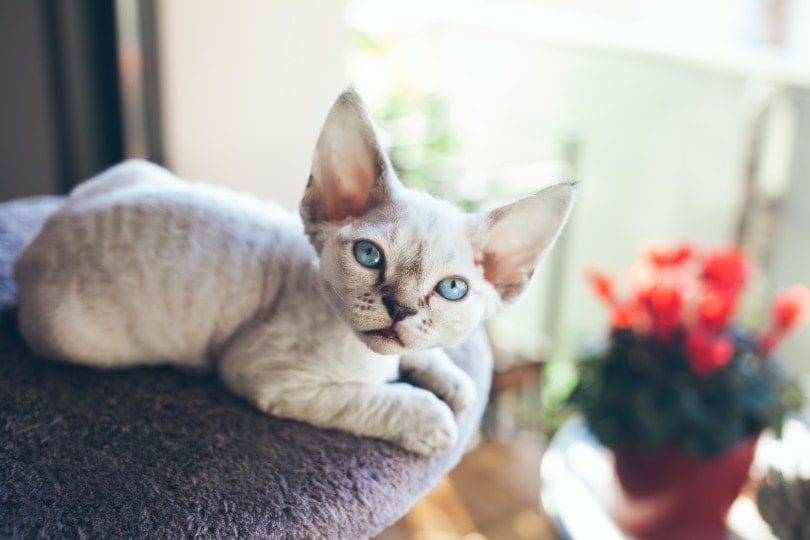
5. Sex
On average, a male Devon Rex lives 2 years fewer than its female counterpart. That tracks with cats overall, where females live about 2 years longer than males. One fascinating fact that you need to note about cats is that spaying or neutering them will significantly increase their lifespans. For example, a neutered male cat can live 62% longer than an intact male cat. A female cat is less at 39%, but spaying your Devon Rex means it will likely live 40% longer. That’s several more years you get to spend with your furry friend!
6. Genes
Devon Rexes have no more genetic conditions than any other cats, thankfully. Like many breeds, they suffer from patellar luxation, where the patella of their knee joint moves out of place and causes friction and pain. Hypertrophic cardiomyopathy is also a problem for D-Rexes, which is a condition that affects the heart. All in all, however, the Devon Rex is a healthy breed with few genetic issues.
7. Breeding History
The best thing to do when adopting a Devon Rex is to ask to see any paperwork relating to its heritage. Yes, that might not be possible if you’re lucky enough to find a Devon rex in a shelter and adopt it from there. However, if you go to a breeder, you should take your time and choose wisely. Top breeders can provide a breeding history, vaccination records, and more. If the one you’re considering using can’t do that, adopt from another or risk getting a very sick kitty.
8. Healthcare
It goes without saying that taking your delightful Devon Rex to the vet regularly is essential if you want them to live a long, healthy life. A vet can help you choose your D-Rex’s diet, let you know how they are progressing as they get older, and help prevent many health conditions.
- Devon Rex Myopathy: This is when your D-Rex has hereditary muscle weakness and can’t lift its head and/or neck. The condition is usually diagnosed when it’s a kitten.
- Hypertrophic Cardiomyopathy: This is the most common heart disease in cats. A good vet will keep tabs on it, but a healthy diet is best.
- Patella luxation: As mentioned earlier, this is when the patella moves out of place and causes irritation and swelling. In older Devon Rexes, patella luxation can be quite painful.
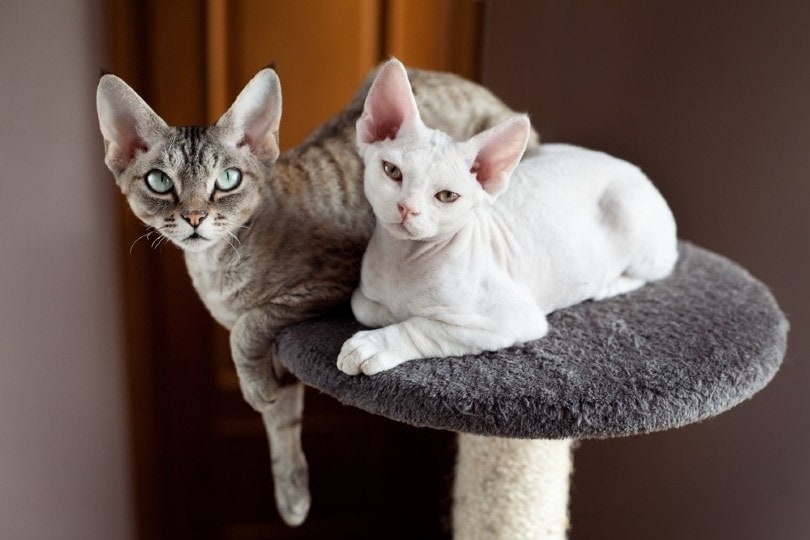
The 3 Life Stages of a Devon Rex
1. Kitten – From 0 to 12 months

You’ve never seen a cuter kitten than a Devon Rex! They have huge, pointy ears and play non-stop but, like all kittens, sleep a lot. This is the best time to bond with your Devon Rex as they love to play, snuggle, and frolic.
2. Mature Adult – From 1 to 8 years
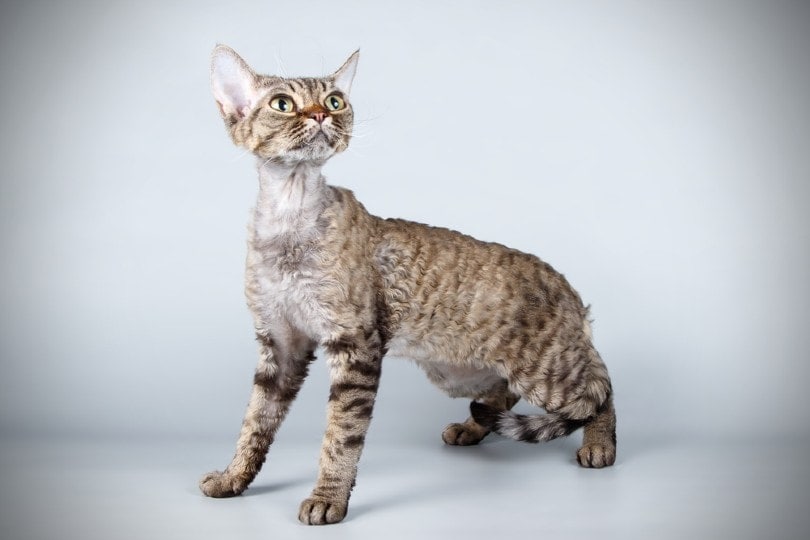
Once your Devon Rex has become an adult, typically around 11 to 12 months, it will calm down a little but still be one of the most playful, fun, intelligent, and interesting cats you’ve ever owned.
3. Senior – 8 to 13 years (or older)
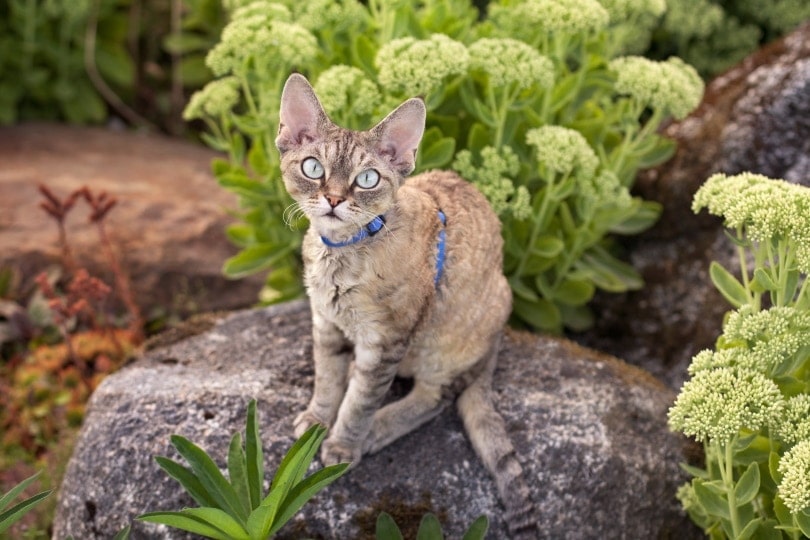
Most Devon Rexes are thin cats and stay relatively thin as senior cats, which helps them get around a little better. They might not play like their younger selves, but a senior D-Rex will still be just as affectionate and loving with you and your other family members.
How to Tell Your Devon Rex’s Age
The best way to tell the age of any Devon Rex is to adopt one as a kitten. That way, you’ll know exactly when it was born to the day. If you adopt one from a shelter or as an adult, telling your Devon Rex’s age will be difficult. Missing or rotting teeth and cloudy eyes may indicate the cat is a senior, but you’re unlikely to pinpoint the feline’s age without professional help.
Final Thoughts
The Devon Rex is a playful and affectionate cat breed that lives 9 to 13 years. That’s above average for cats and is helped by the fact that Devon Rexes are a healthy breed with few genetic issues. If you feed your D-Rex a healthy, nutritious diet, maintain regular veterinary checkups, keep them away from the street and cars, and give them as much love as you can, they can live even longer.
- See Also: Is a Devon Rex Hypoallergenic?
Featured Image Credit: Veera, Shutterstock



